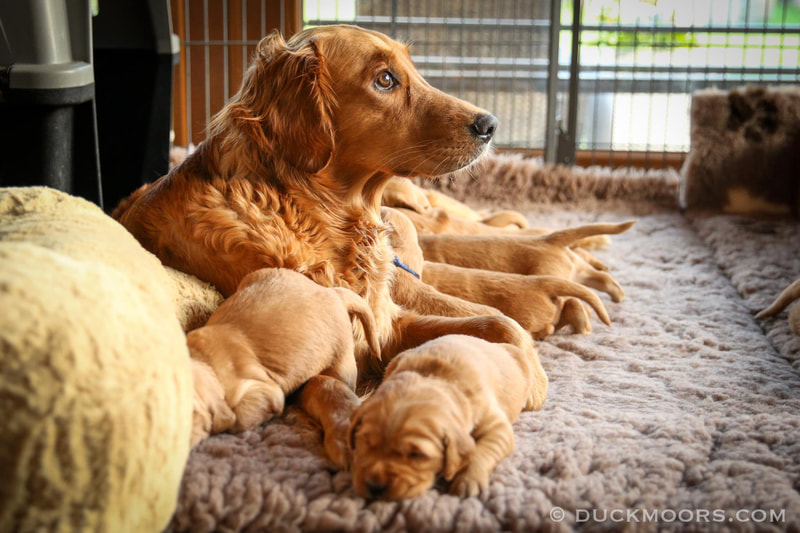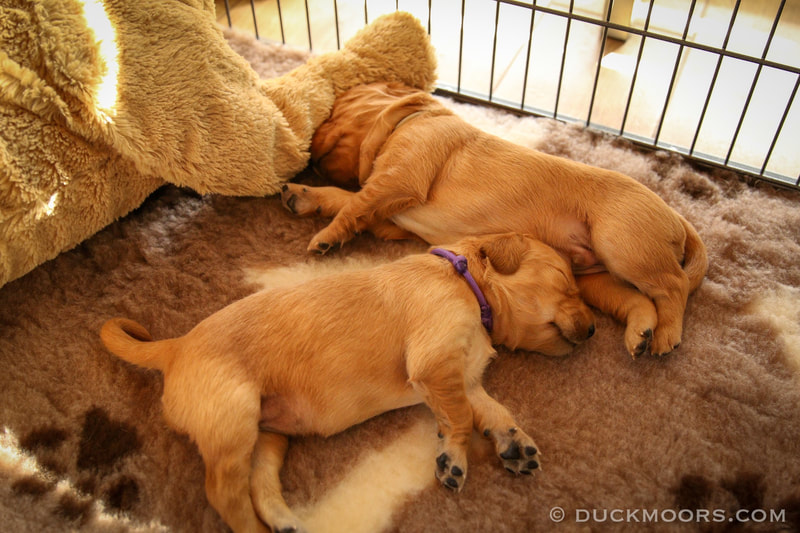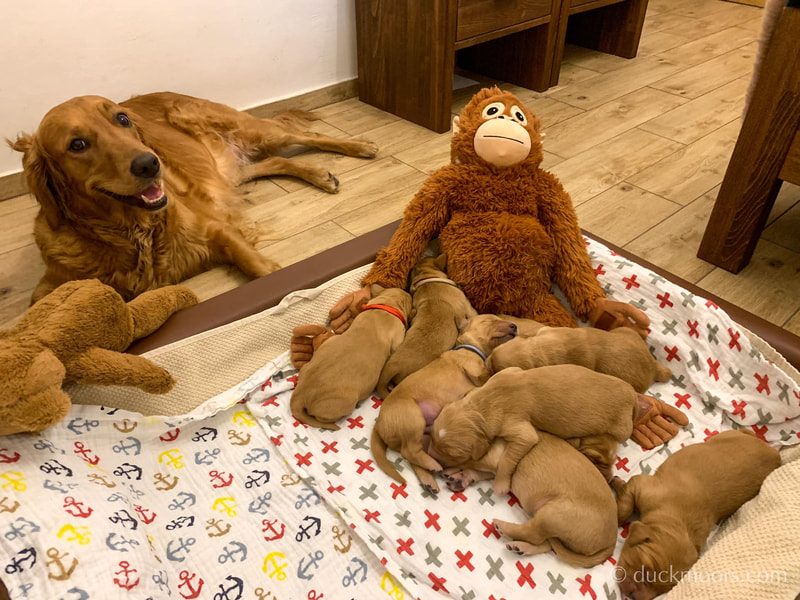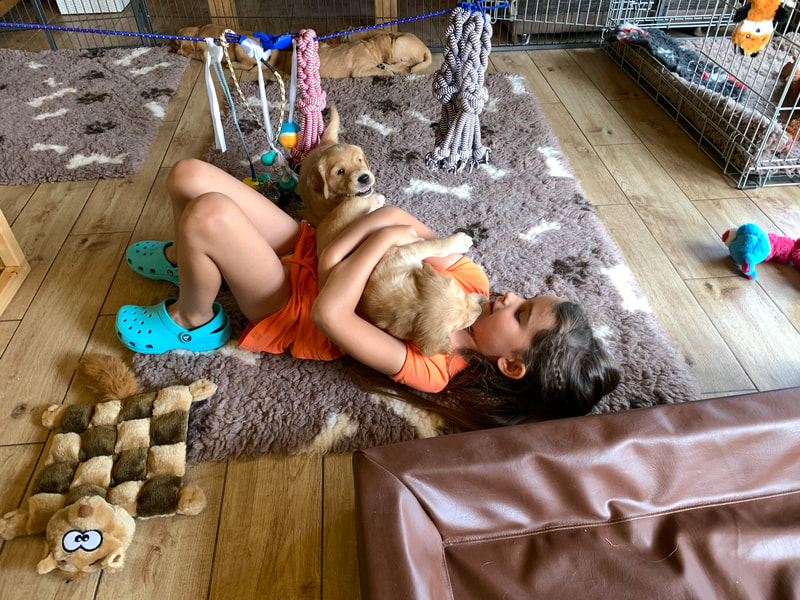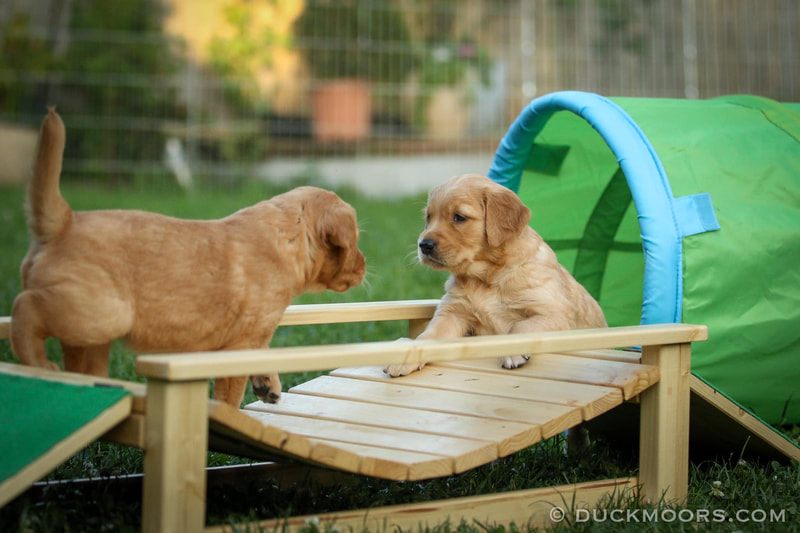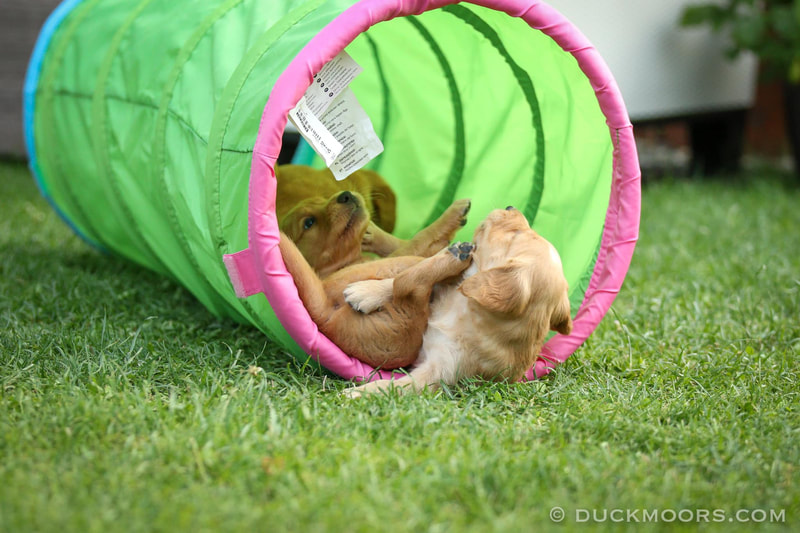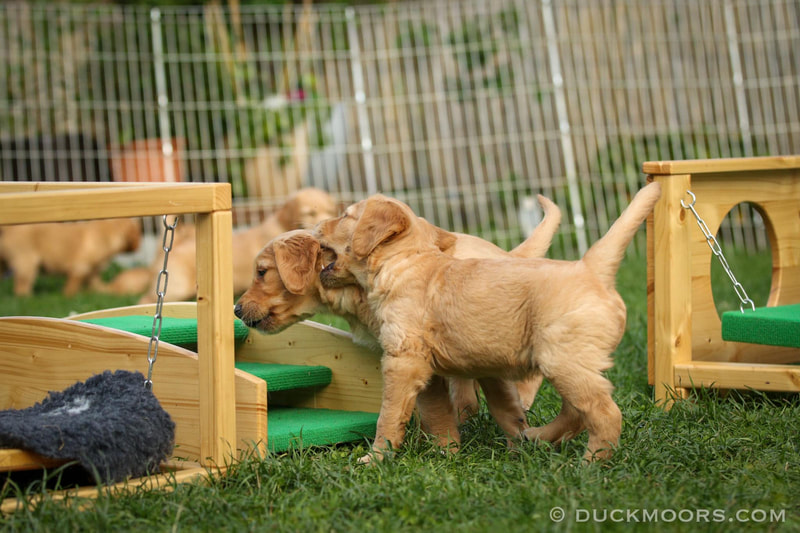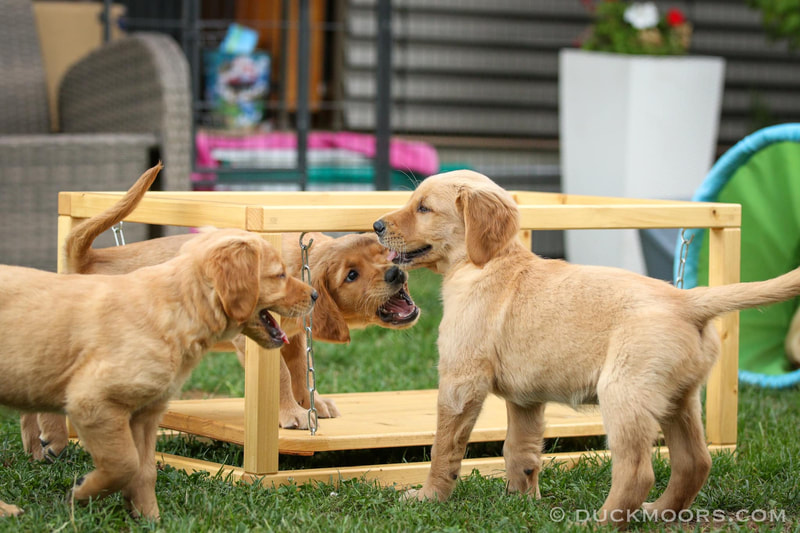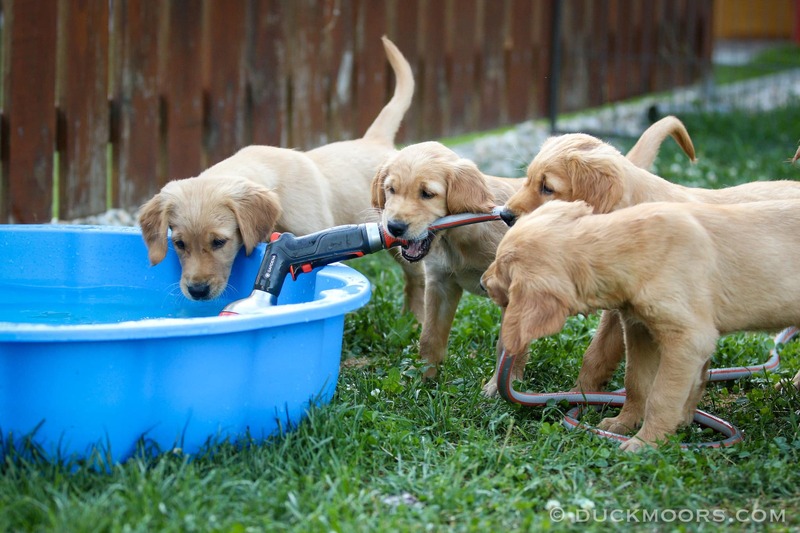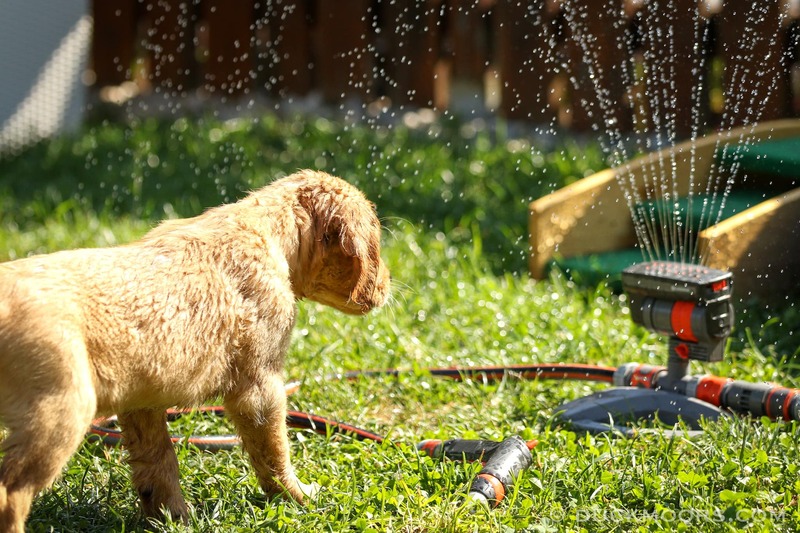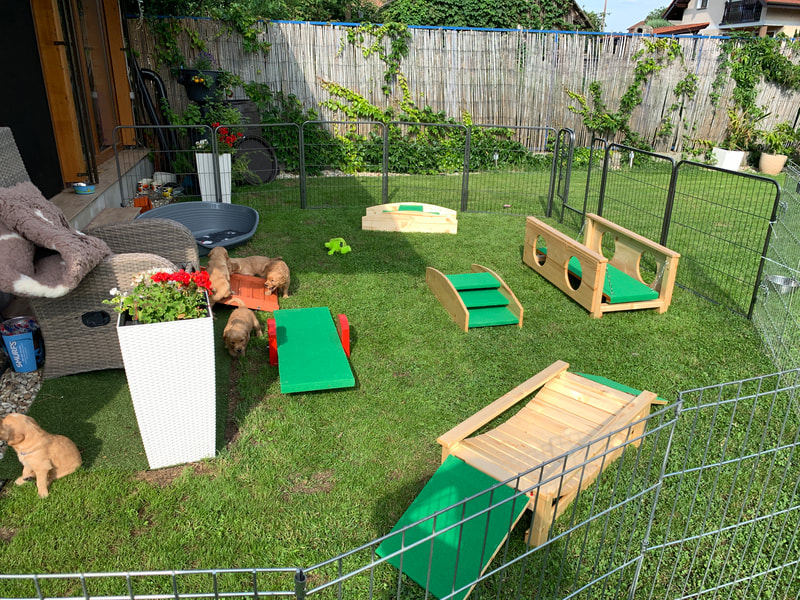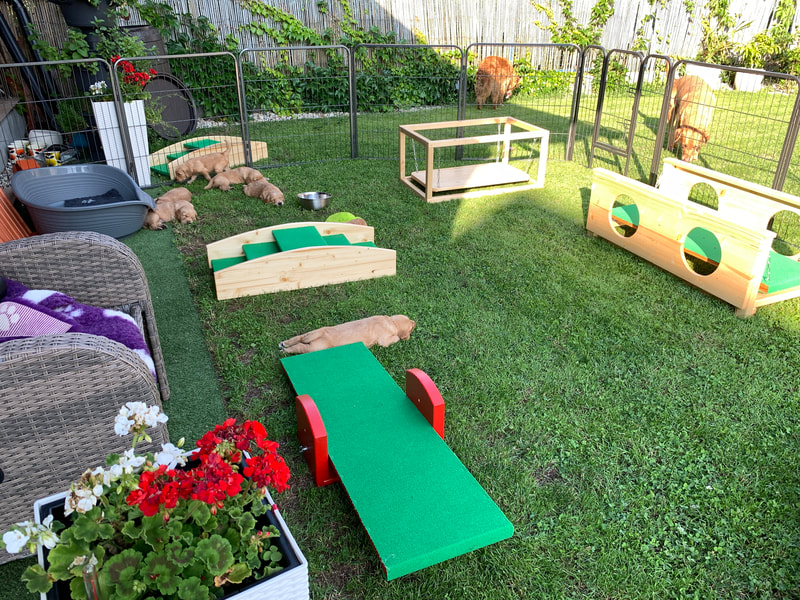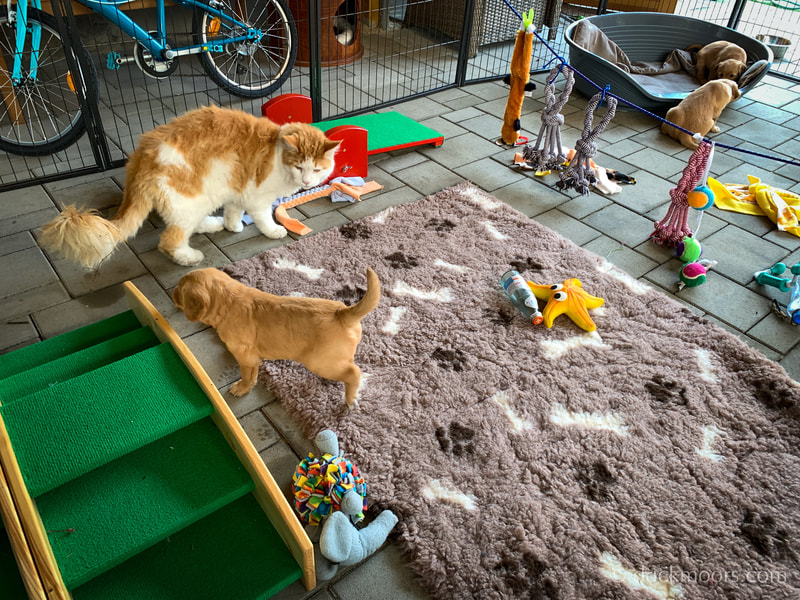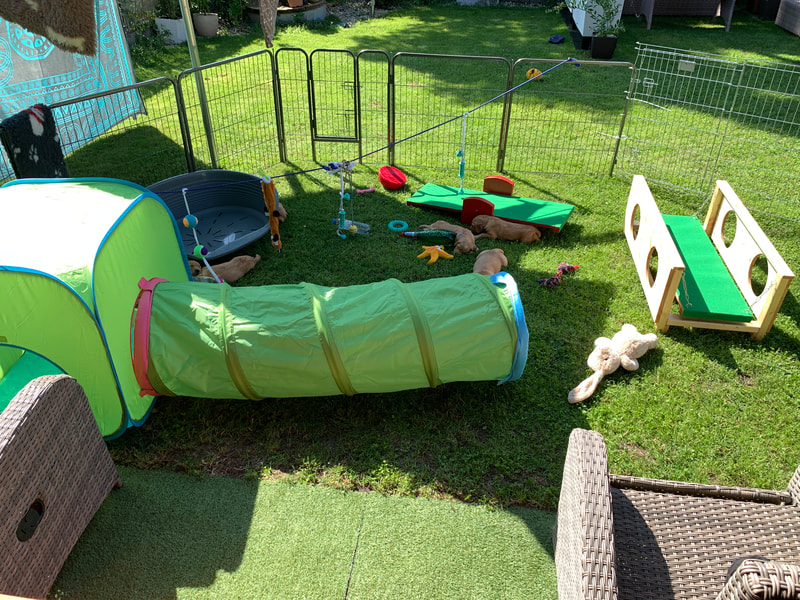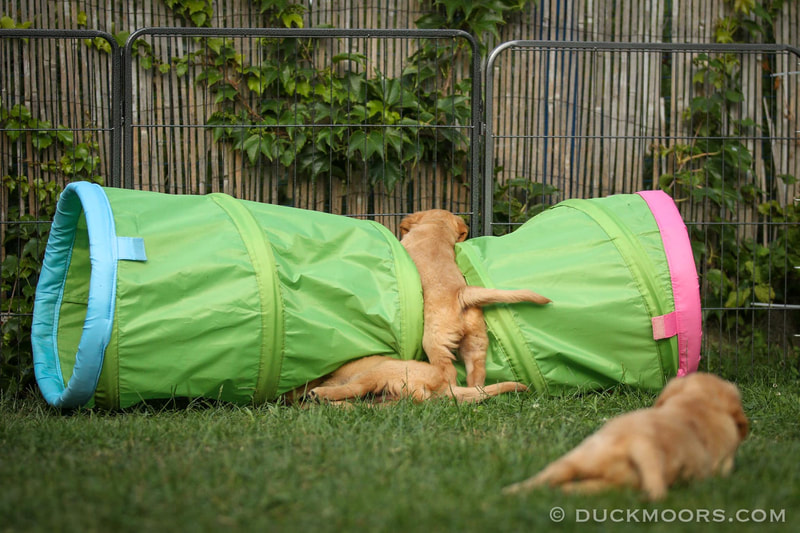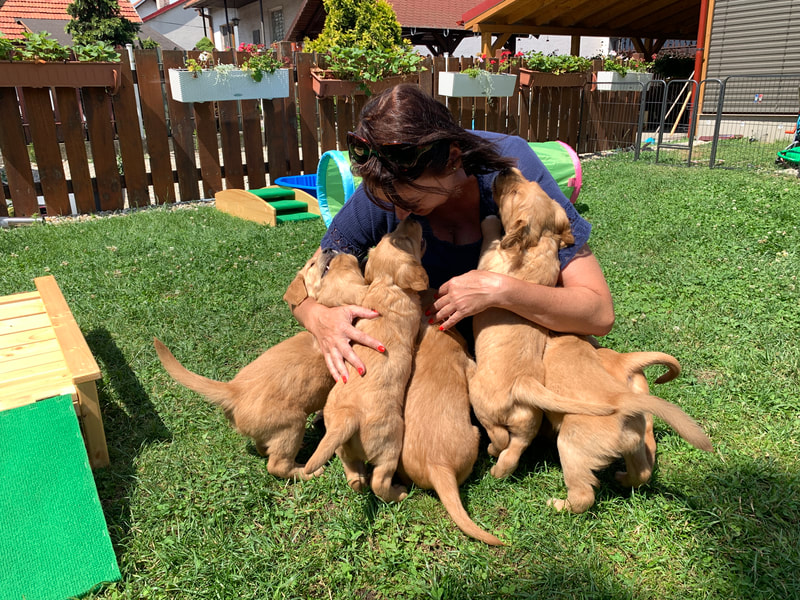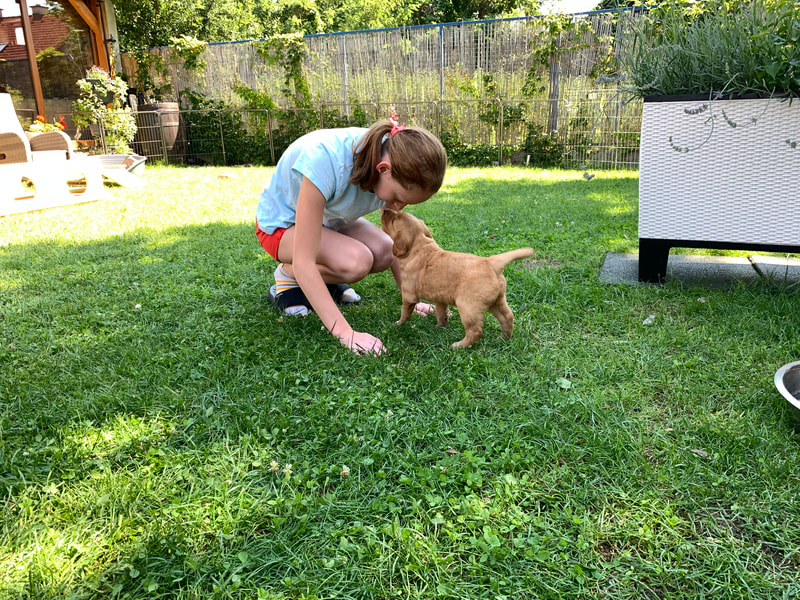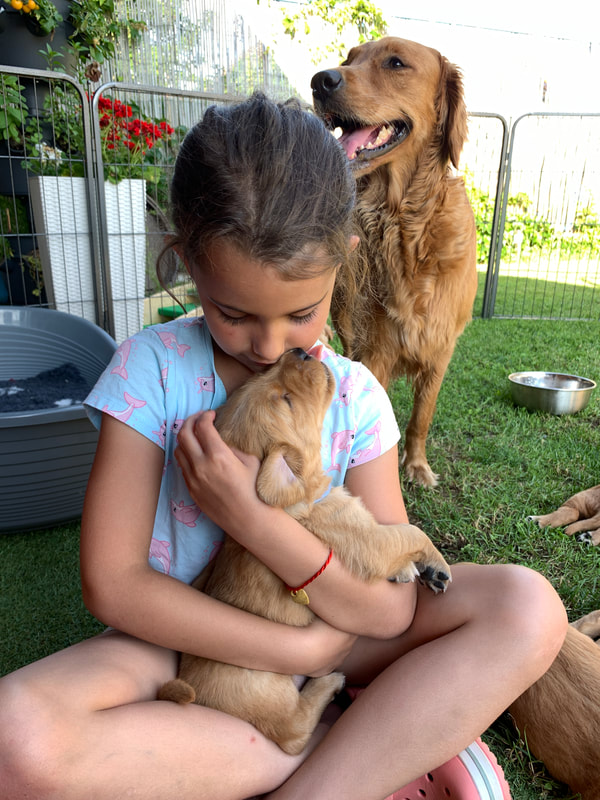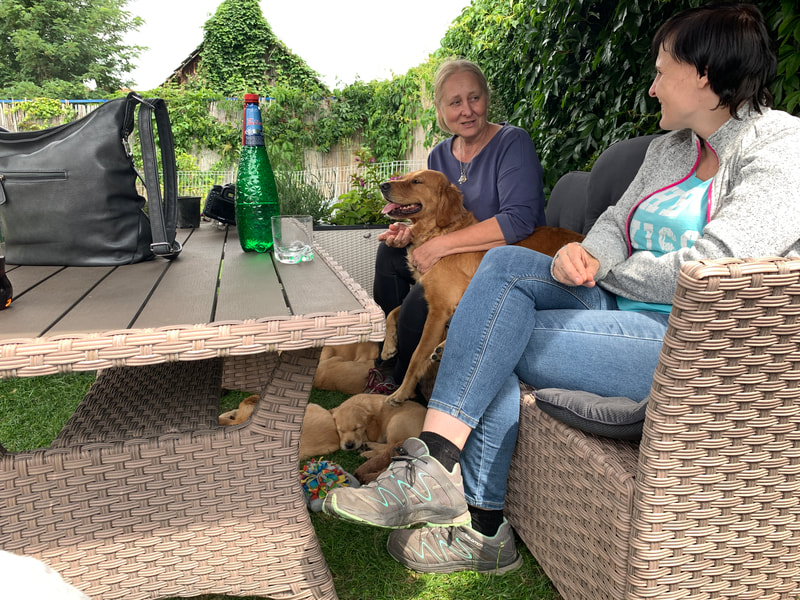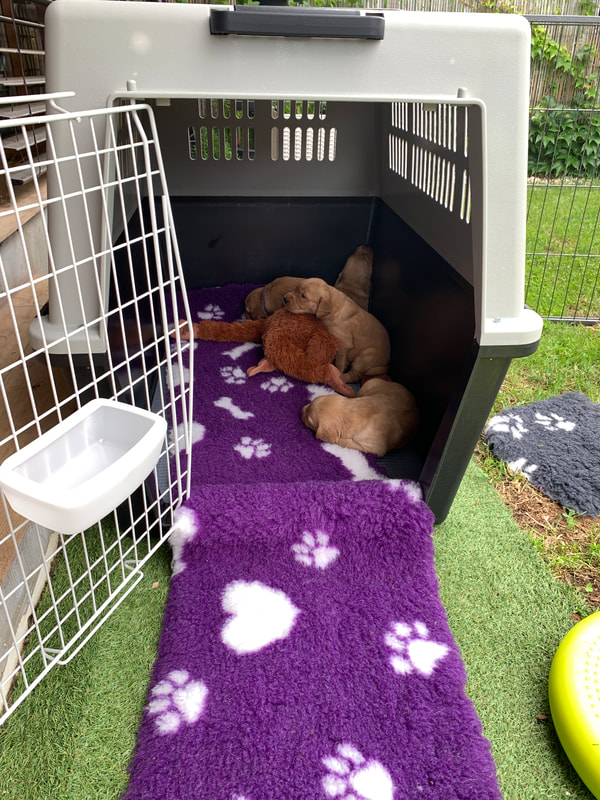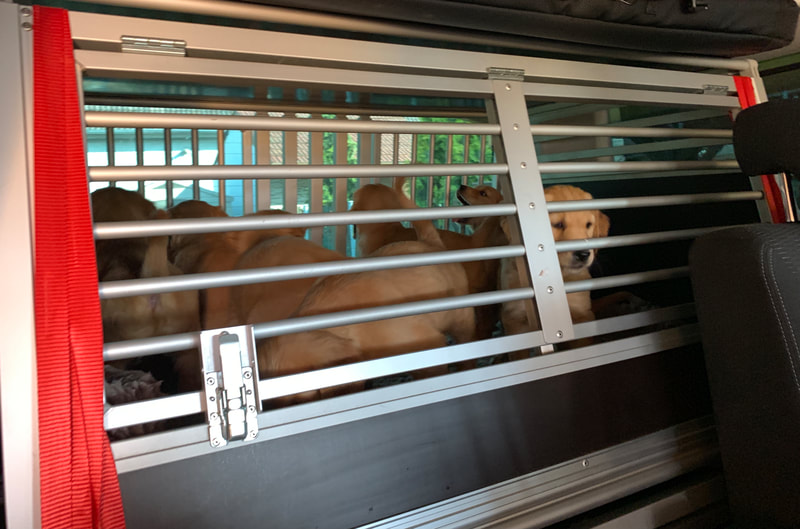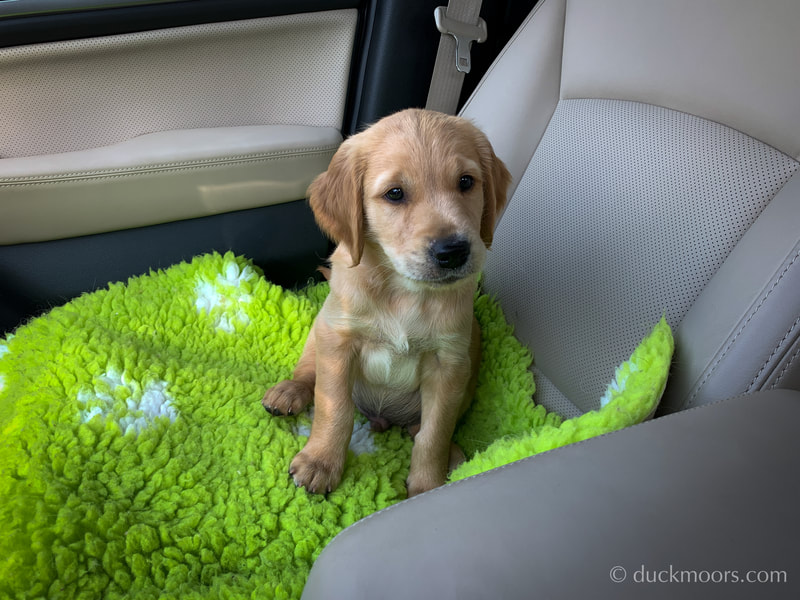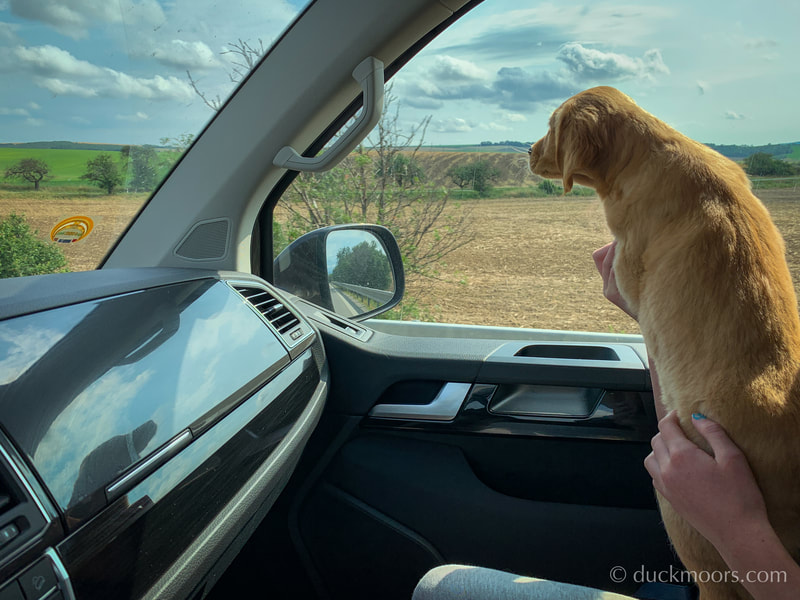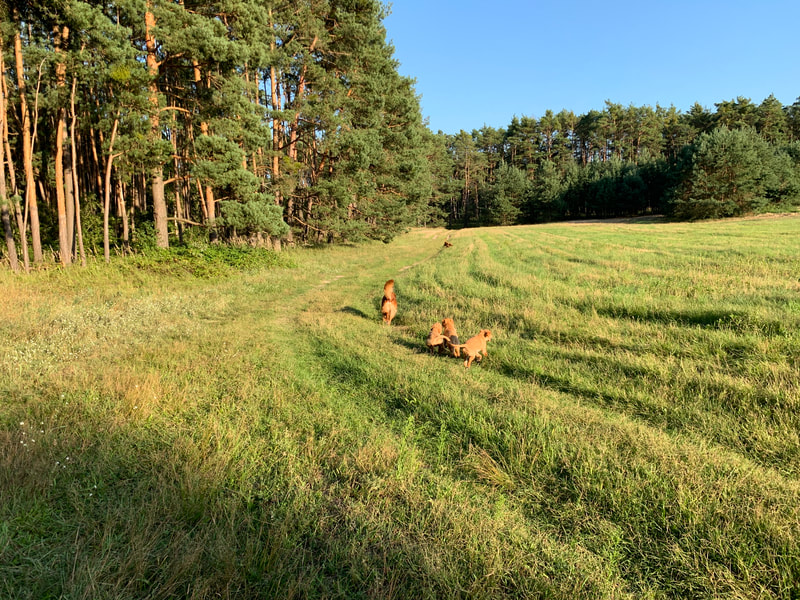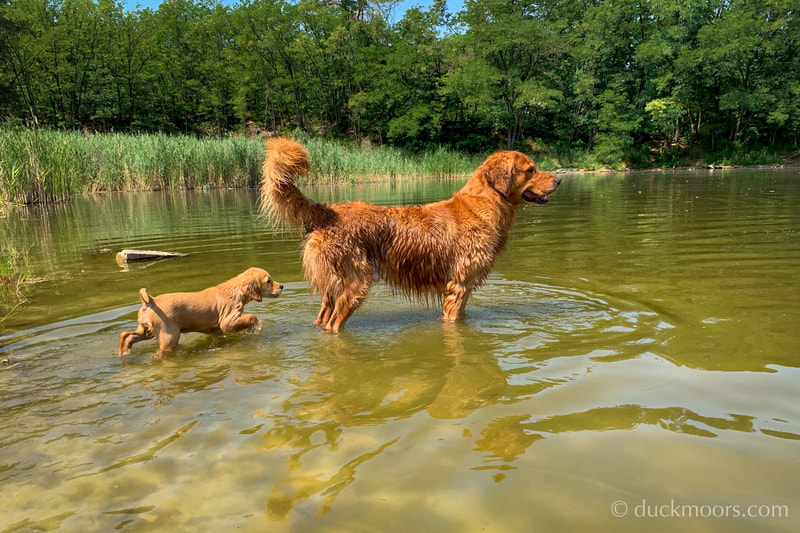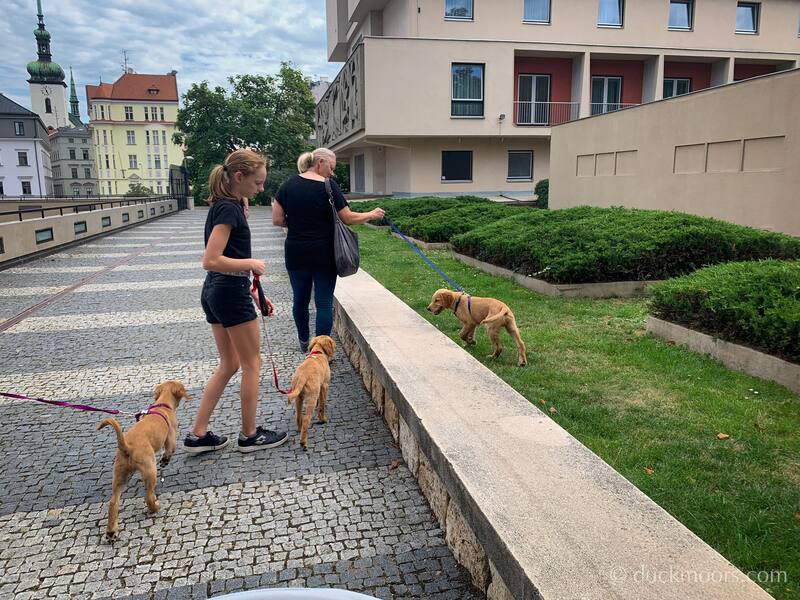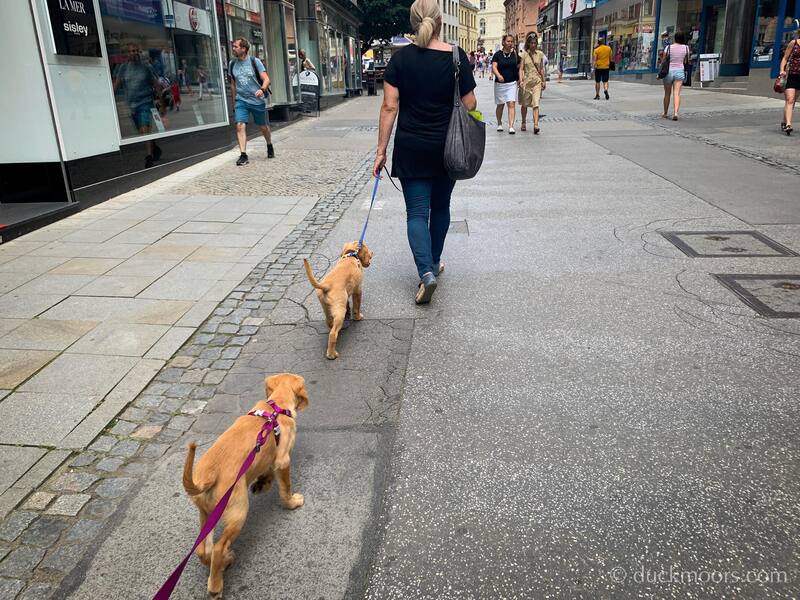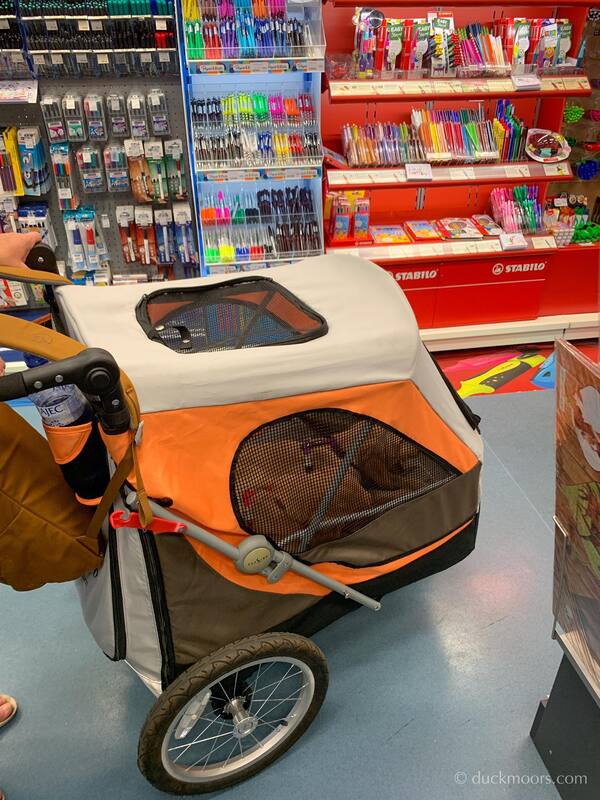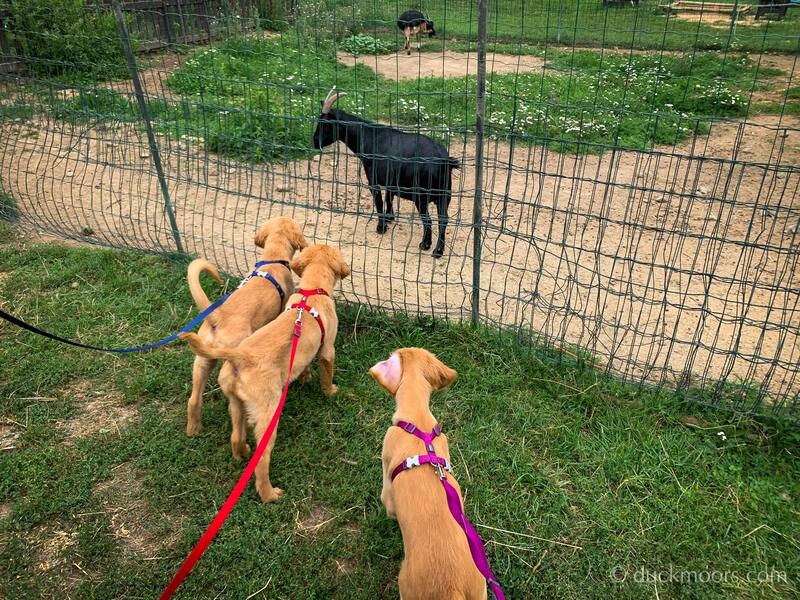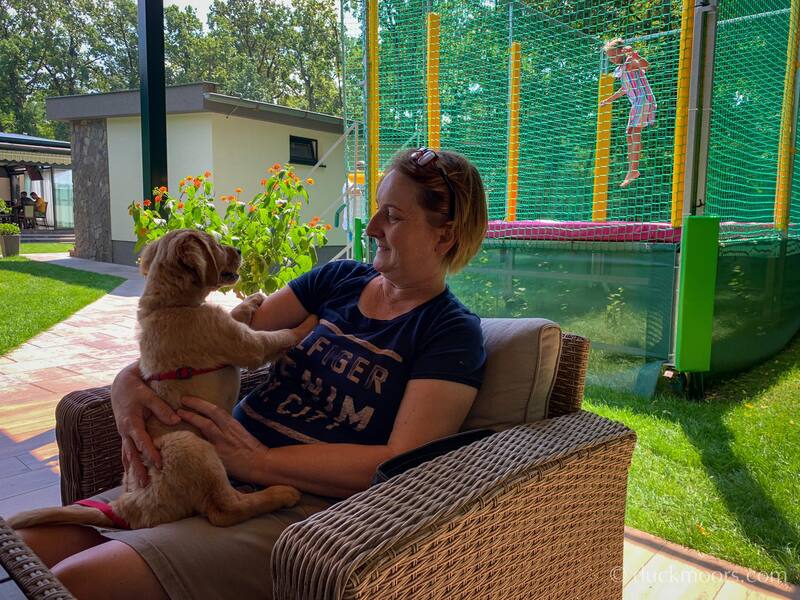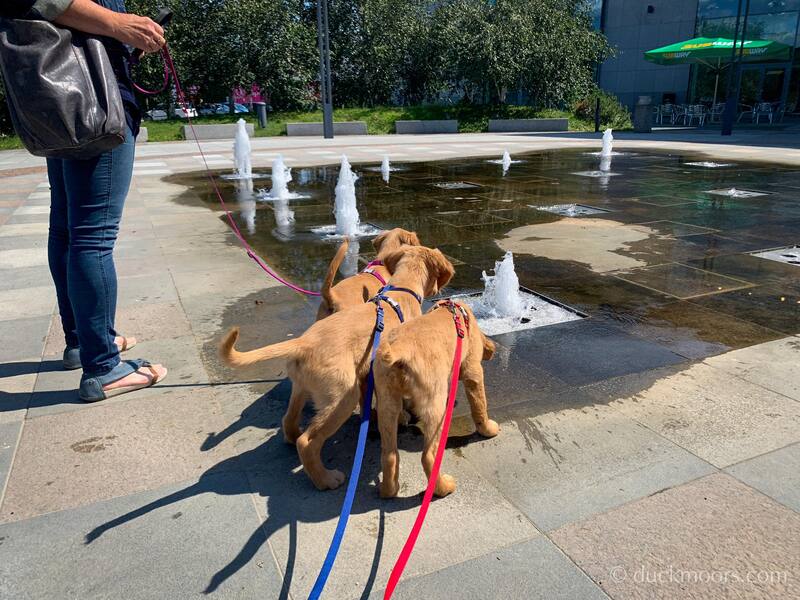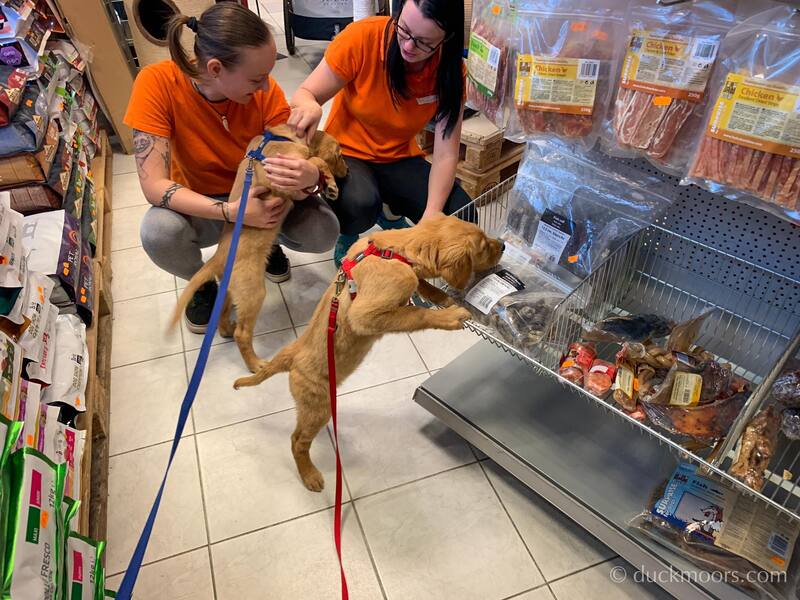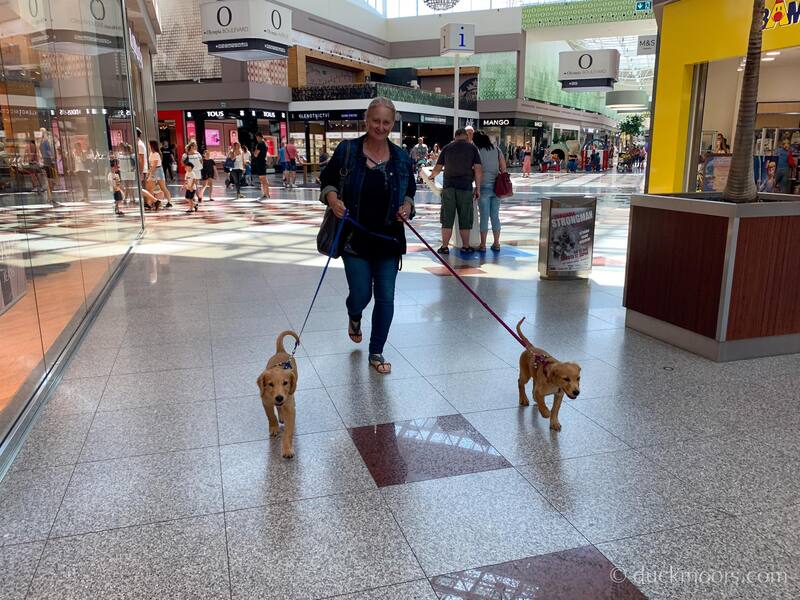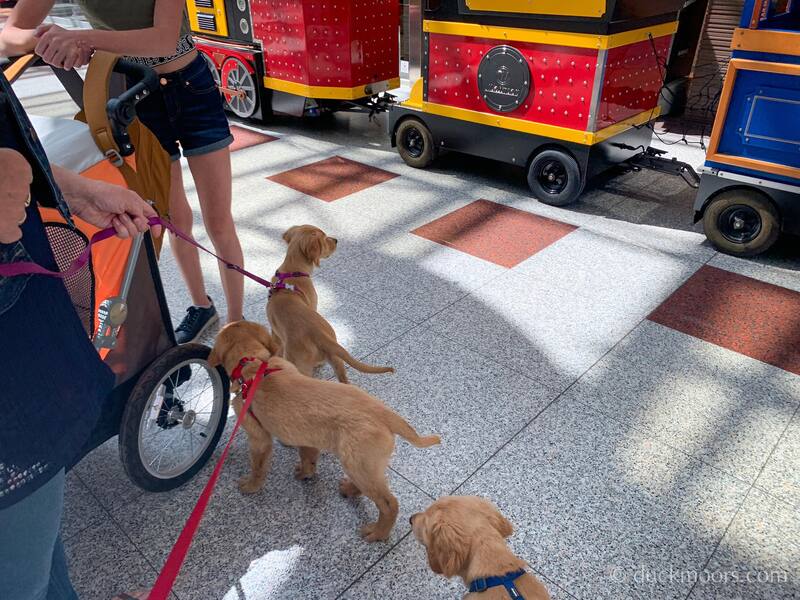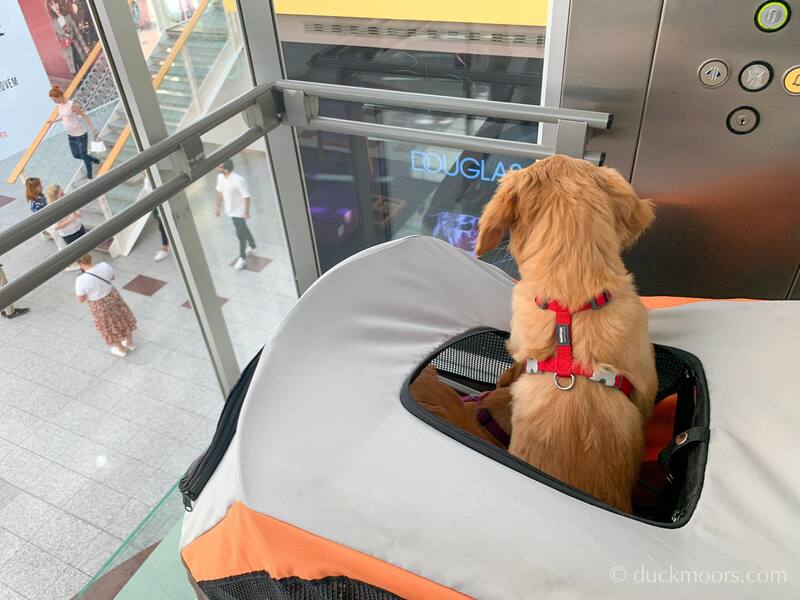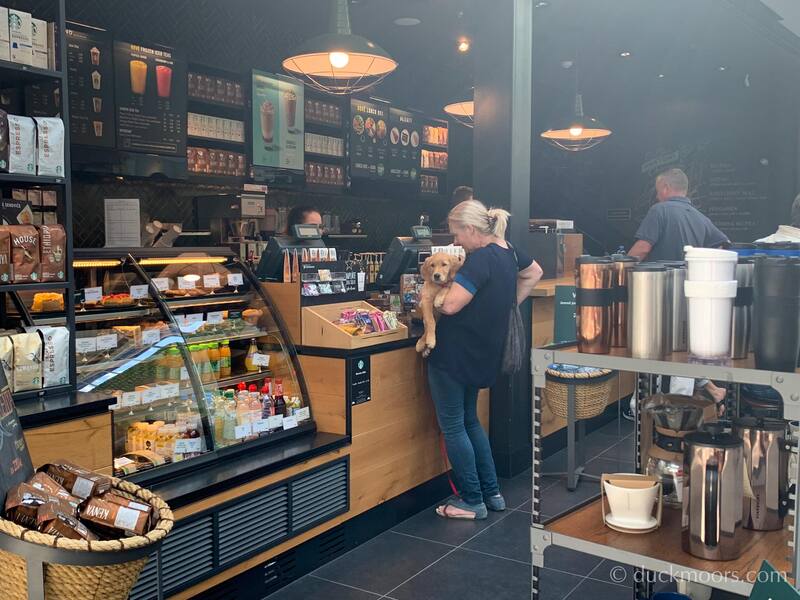
WE PLAN A LITTER with Jazzie - END OF 2024/BEGINNING OF 2025. Waiting list is open.
We expect her puppies will be more than just companions; they will be bred to work, embodying the perfect drive and will to please.
If you are eager to welcome a puppy that combines a keen work ethic with an honest and open character,
reach us via email at [email protected].
We breed "the working line" golden retrievers. These dogs need to do more than just to be a family dogs and everyday companions. However, they are lovely family dogs, if they get the exercise (head-wise) that they need.
The future owners of our puppy should know the needs of working golden retrievers.
If you are a hunter, you do or want to compete in dummy sports (regular training and tests), mantrailing, agility, train rescue dogs or you want to do any activity that will occupy their head .. than contact us!
If you are looking for a companion for long walks, you would like to have an active dog as you are an active family, if you are looking for a therapy dog, you are looking dog for your children, you have a big garden, you like just being outside or if you find "the working line" just prettier than "show line", please, contact the breeder who breeds "the show line".
We recommend those interested in a puppy from our kennel to send an e-mail with preliminary interest and your idea of a puppy in advance. We are happy if those interested in a puppy introduce themselves first, so that we know the environment in which the puppy will grow up. We prefer communication by email as the first contact. We choose the new owners of our puppies very carefully. Puppies will only be placed in families that will guarantee their further high-quality, fulfilling and happy life. Puppies from us have the predispositions to be used at work, so we place our puppies preferably in working homes. However, competitions are not a condition, for us the most important thing is that our puppies have the best possible time in their new homes, that they are given enough attention and socialization, "brain-stimulation" and that their new owners love them as much as we do throughout their lives.
The future owners of our puppy should know the needs of working golden retrievers.
If you are a hunter, you do or want to compete in dummy sports (regular training and tests), mantrailing, agility, train rescue dogs or you want to do any activity that will occupy their head .. than contact us!
If you are looking for a companion for long walks, you would like to have an active dog as you are an active family, if you are looking for a therapy dog, you are looking dog for your children, you have a big garden, you like just being outside or if you find "the working line" just prettier than "show line", please, contact the breeder who breeds "the show line".
We recommend those interested in a puppy from our kennel to send an e-mail with preliminary interest and your idea of a puppy in advance. We are happy if those interested in a puppy introduce themselves first, so that we know the environment in which the puppy will grow up. We prefer communication by email as the first contact. We choose the new owners of our puppies very carefully. Puppies will only be placed in families that will guarantee their further high-quality, fulfilling and happy life. Puppies from us have the predispositions to be used at work, so we place our puppies preferably in working homes. However, competitions are not a condition, for us the most important thing is that our puppies have the best possible time in their new homes, that they are given enough attention and socialization, "brain-stimulation" and that their new owners love them as much as we do throughout their lives.
How we raise puppies at Duckmoors (and why)
Puppies raised in the house
Many breeders raise puppies in the house, but they move them outdoors at the age of 3-4 weeks when they make a lot of noise and mess. Unfortunately, the socialization begins in this period - and the pups need, more than ever before, to be in the middle of a busy household! In our kennel, we take care of our puppies really seriously, and our litters are born and bred in the house. "Puppy culture" is another aid that we use in raising our puppies. Developed by a team of experts, it contains a wealth of exercises and information on resiliency exercises, safe early socialization, harnessing the enrichment effect, developmental and fear periods, anti-aggression protocols, leash walking, potty training, crate training, manding, ...
Many breeders raise puppies in the house, but they move them outdoors at the age of 3-4 weeks when they make a lot of noise and mess. Unfortunately, the socialization begins in this period - and the pups need, more than ever before, to be in the middle of a busy household! In our kennel, we take care of our puppies really seriously, and our litters are born and bred in the house. "Puppy culture" is another aid that we use in raising our puppies. Developed by a team of experts, it contains a wealth of exercises and information on resiliency exercises, safe early socialization, harnessing the enrichment effect, developmental and fear periods, anti-aggression protocols, leash walking, potty training, crate training, manding, ...
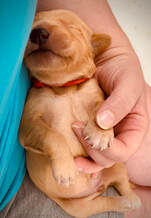
Puppy Culture 0-14 days - neonatal period
Newborn pups show very little activity other than simple patterns of care seeking behavior. The central nervous system is developing rapidly. From day 3, we provide puppies with early neurological stimulation (ENS) and continue to day 16. An ENS program that uses early neurological stimulation and helps "kick-start" the puppy's adrenal system. The benefits of ENS include a stronger heart, greater endurance, a stronger immune system, faster recovery and tolerance to stress, among others. The research showed that tiny struggles and stressses in small doses are actually good for puppies and help them to grow into a strong, healthy adults. It is well established that during this period, short periods of daily handling and other stimuli can have marked, long term effects on a puppy's behavioral and physical development.
Puppy culture 15-21 days - transition period
Another period starts when puppies' eyes are open. This period is characterized by significant changes and neurologic development. This is the best time to sound train them since their ability to fear yet did not develop and they recover much faster from noises, therefore, they won't be afraid. This period ends when the puppies first "startles" on hearing noise.
Puppy culture 22-84 days - socialization period
This is a critical period where puppies learn to relate to, communicate with, and feel comfortable with other dogs/animals, humans (male/female/children, seniors) as well as their environment. This is the most influential learning period of a puppy’s entire life! Lessons they learn, or do not learn, during this time will influence their future as an adult dog. At this stage we introduce them a bigger play pen. They need a play time with toys which are not only for fun, but also teach them to think. For example: having a a puppy goes down a small slide, going through a tunnel, standing on a wobby surface and trying to balance, ..
Newborn pups show very little activity other than simple patterns of care seeking behavior. The central nervous system is developing rapidly. From day 3, we provide puppies with early neurological stimulation (ENS) and continue to day 16. An ENS program that uses early neurological stimulation and helps "kick-start" the puppy's adrenal system. The benefits of ENS include a stronger heart, greater endurance, a stronger immune system, faster recovery and tolerance to stress, among others. The research showed that tiny struggles and stressses in small doses are actually good for puppies and help them to grow into a strong, healthy adults. It is well established that during this period, short periods of daily handling and other stimuli can have marked, long term effects on a puppy's behavioral and physical development.
Puppy culture 15-21 days - transition period
Another period starts when puppies' eyes are open. This period is characterized by significant changes and neurologic development. This is the best time to sound train them since their ability to fear yet did not develop and they recover much faster from noises, therefore, they won't be afraid. This period ends when the puppies first "startles" on hearing noise.
Puppy culture 22-84 days - socialization period
This is a critical period where puppies learn to relate to, communicate with, and feel comfortable with other dogs/animals, humans (male/female/children, seniors) as well as their environment. This is the most influential learning period of a puppy’s entire life! Lessons they learn, or do not learn, during this time will influence their future as an adult dog. At this stage we introduce them a bigger play pen. They need a play time with toys which are not only for fun, but also teach them to think. For example: having a a puppy goes down a small slide, going through a tunnel, standing on a wobby surface and trying to balance, ..
|
Early toilet-training
When the puppies have their eyes open, at about 3 weeks, they start to be more active, a toilet area is added to the whelping box. This space significantly speeds up the practice of hygiene habits for new owners because puppies have learned not to do their needs all around and sleep in their pee/poop. At this age, we use a plastic pad with corrugated cardboard, on which the puppies do not slip. The whelping box/pen is divided into a space for sleeping, playing and a toilet area. |
|
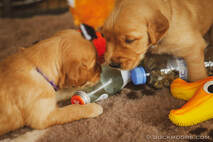
New objects every day
As soon as the puppies' eyes are open, they get a new object in the whelping box daily. The puppies are intensively researching these new objects. We try to vary the objects to have different textures, sounds, smells and sizes.
As soon as the puppies' eyes are open, they get a new object in the whelping box daily. The puppies are intensively researching these new objects. We try to vary the objects to have different textures, sounds, smells and sizes.
|
Weaning - recall whistle
Our puppies are fed a raw diet - BARF since 3-4 weeks. From this age, and throughout the entire time with us, the puppies hear ACME 212 field trial whistle before we put the food on the ground - at every meal. At first, this sound means nothing to them, but as long as they are 7-8 weeks old, they will be very excited when they hear the whistle. This means that all our puppies go to new homes with a trained recall whistle. We also give our new owners a whistle so they can continue our good work. |
|
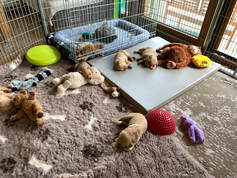
Puppy pen
At about 4 weeks, the puppies are too big and too active to be in the whelping box. At this age, we move them to a larger space, still in the house. They also have an area for sleeping, playing and the toilet, and it is kept absolutely clean. The puppies have a lot of toys and equipment to play with. We are constantly introducing new objects to them every day. At this age, we also present crate/box with open doors.
At about 4 weeks, the puppies are too big and too active to be in the whelping box. At this age, we move them to a larger space, still in the house. They also have an area for sleeping, playing and the toilet, and it is kept absolutely clean. The puppies have a lot of toys and equipment to play with. We are constantly introducing new objects to them every day. At this age, we also present crate/box with open doors.
Barrier challenge
With barrier challenges, we start at the age of 4 weeks. We repeat them every day with each puppy until they have no problems navigating the barrier. The puppy gets a small portion of food and then moves a little further behind the barrier. The puppy must come around the barrier to reach the food. Barrier challenges help puppies enhance problem-solving and intelligence and develop the ability to think and manage the frustration of failure.
With barrier challenges, we start at the age of 4 weeks. We repeat them every day with each puppy until they have no problems navigating the barrier. The puppy gets a small portion of food and then moves a little further behind the barrier. The puppy must come around the barrier to reach the food. Barrier challenges help puppies enhance problem-solving and intelligence and develop the ability to think and manage the frustration of failure.
Puppies' outdoor playground
At the age of about 5 weeks, the puppies begin to spend time in the outdoor enclosure. The puppies have toys hanging over their heads, tunnels that need to be climbed through, fluctuating boards that move under their feet, various fit pads to get used to different materials and surfaces, and much more! The outdoor playground increases the socialization experience of the puppies. This allows them to have more play equipment and give the puppies the opportunity to chase and free running. Also they have possibility to meet and play with other our dogs.
At the age of about 5 weeks, the puppies begin to spend time in the outdoor enclosure. The puppies have toys hanging over their heads, tunnels that need to be climbed through, fluctuating boards that move under their feet, various fit pads to get used to different materials and surfaces, and much more! The outdoor playground increases the socialization experience of the puppies. This allows them to have more play equipment and give the puppies the opportunity to chase and free running. Also they have possibility to meet and play with other our dogs.
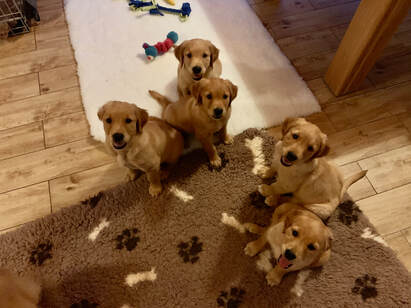
Clicker training and "default sit"
The "default sit" is the one which the puppy guesses without anyone guiding him with a verbal command or hands. If the puppy wants something, he "asks" it by sitting rather than jumping on everything. We try to achieve several "sessions" with each individual puppy.
Group "default sit"
After the puppies know the "default sit" individually, we start training them in a group. We feed every sitting puppy and ignore all jumping puppies. With this "exercise", if someone approaches the puppies, the puppies sit and wait instead of jumping crazy on the pen. "Default sit" is about the development of concept of self-control in very young puppies. "Default sit" provides the puppy with a way to communicate "I would like that" in a socially acceptable way.
The "default sit" is the one which the puppy guesses without anyone guiding him with a verbal command or hands. If the puppy wants something, he "asks" it by sitting rather than jumping on everything. We try to achieve several "sessions" with each individual puppy.
Group "default sit"
After the puppies know the "default sit" individually, we start training them in a group. We feed every sitting puppy and ignore all jumping puppies. With this "exercise", if someone approaches the puppies, the puppies sit and wait instead of jumping crazy on the pen. "Default sit" is about the development of concept of self-control in very young puppies. "Default sit" provides the puppy with a way to communicate "I would like that" in a socially acceptable way.
Puppy Party
We organize a "puppy party" as soon as the puppies reach the right age for it. In order to socialize our puppies, we ask our friends to come visit us as we want that our puppies meet all kinds of people - young people, elder, male, female, men with mustache and beard, women with hats, people wearing glasses, mail carriers, people with umbrellas, backpacks, bikes, inline skaters, etc... Much of what is learned during puppies early development period is permanent and provides a foundation for adult behavior patterns. The more people a puppy interacts with at this age, the more secure they'll be about meeting people in their adult role.
We organize a "puppy party" as soon as the puppies reach the right age for it. In order to socialize our puppies, we ask our friends to come visit us as we want that our puppies meet all kinds of people - young people, elder, male, female, men with mustache and beard, women with hats, people wearing glasses, mail carriers, people with umbrellas, backpacks, bikes, inline skaters, etc... Much of what is learned during puppies early development period is permanent and provides a foundation for adult behavior patterns. The more people a puppy interacts with at this age, the more secure they'll be about meeting people in their adult role.
Travelling by car at 6-7 weeks
Many puppies have a long way to go when they leave with a new family. For this reason, we think it is essential that they are used to the crate and have experience with car trips. We take puppies for several short trips by car to different places. We do not put puppies on the ground in public places or allow them to meet foreign dogs. We hold them in our arms; we carry them and allow people to meet them. We also travel for a short trips to the safe area in woods or on the field.
Many puppies have a long way to go when they leave with a new family. For this reason, we think it is essential that they are used to the crate and have experience with car trips. We take puppies for several short trips by car to different places. We do not put puppies on the ground in public places or allow them to meet foreign dogs. We hold them in our arms; we carry them and allow people to meet them. We also travel for a short trips to the safe area in woods or on the field.
Socialization checklist - 100 things in 100 days
Socialization does not end when the puppy leaves us at the age of 8 weeks. When we send our puppies home, you get a checklist of 100 things you need to do in the first 100 days when you already have your puppy. We have already introduced some things to the puppies; other stimuli and sounds will be entirely new for your puppy. The list is divided into 4 categories; sound, smell, people/animals and touch. It's the perfect way to keep exposing your puppy to new things and building a stronger bond with him.
Socialization does not end when the puppy leaves us at the age of 8 weeks. When we send our puppies home, you get a checklist of 100 things you need to do in the first 100 days when you already have your puppy. We have already introduced some things to the puppies; other stimuli and sounds will be entirely new for your puppy. The list is divided into 4 categories; sound, smell, people/animals and touch. It's the perfect way to keep exposing your puppy to new things and building a stronger bond with him.

